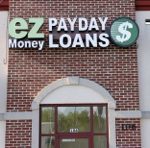Owing a large amount in student loans can cause a borrower a lot of stress as he or she tries to figure out a way to make payments and still afford other necessities. The unaffordability of student loans can cause the borrower to consider declaring bankruptcy. While bankruptcy can help with handling student loan debt,… [Continue Reading]
What Happens to My Debt After I Die?
When a person dies, his or her debt does not always die, too. This can be a major concern for a person with a large amount of debt and who does not want his or her heirs to inherit this debt upon his or her death. The person may own few assets and not want… [Continue Reading]
Foreclosure With More Than One Loan Against Your Property
A foreclosure may not be the end of a homeowner’s financial problems if the homeowner has multiple loans secured by the home. These additional loans are generally known as junior liens, and they can take the form of second mortgages or home improvement loans. The lenders of these loans are usually behind the original mortgage… [Continue Reading]
Bankruptcy and Job Prospects
Bankruptcy can impact many areas of a person’s life. After the bankruptcy is concluded, the person filing for bankruptcy has to recover financially and build up his or her credit again. This can make buying a home, renting an apartment, and even getting a job in some cases more difficult. Not all jobs require candidates… [Continue Reading]
Filing for Chapter 7 Bankruptcy After Divorce
Divorces can be expensive in many ways, and for some people, being stuck with all the marital debt or a large portion of it can mean that filing for bankruptcy is inevitable. Filing for bankruptcy after a divorce does not always mean that a person’s obligation to pay off all debt is cancelled. Depending on the steps… [Continue Reading]
Reaffirming Mortgage Debt After Filing for Bankruptcy
When a homeowner is facing foreclosure because of financial problems, and also has other significant debts that are unmanageable, bankruptcy may be the best way forward. However, when a mortgage debt is discharged in a Chapter 7 bankruptcy, the homeowner does not get to keep the house free and clear of debt. If the homeowner… [Continue Reading]
Short Sale as a Way Out of an Underwater Mortgage
Most homeowners try to avoid foreclosure and the financial damage a foreclosure can cause by seeking out ways to work with the mortgage lender. Once a mortgage lender forecloses on a loan owed by a homeowner, the foreclosure is noted on the person’s credit history for a period of seven years. This negative notation can… [Continue Reading]
Divorce and Bankruptcy: A Perfect Storm
Divorce and bankruptcy are two areas of the law that can often overlap, affecting each other in many ways. Depending on which Chapter of the bankruptcy code a debtor files for relief may affect obligations granted in a divorce decree or settlement. When a person files for bankruptcy, “automatic stay” provisions come into play and… [Continue Reading]
Payday Lenders Get Reigned In With Proposed Rule Change
The Consumer Financial Protection Bureau on June 2, 2016 proposed new regulations to protect consumers from predatory lending practices that the CFPB’s top regulator calls “debt traps.” The new rules would cover a variety of small-dollar loans marketed to financially vulnerable consumers, such as payday loans, auto title loans (where the vehicle is used as… [Continue Reading]
High Court Expands Definition of Fraud
The U.S. Supreme Court issued a ruling this month that expands the definition of fraud in bankruptcy cases and it means a debtor can’t move money around and then claim insolvency. The high court reversed an appellate court ruling that a debt obtained through fraud can still be wiped away in bankruptcy as long as… [Continue Reading]












